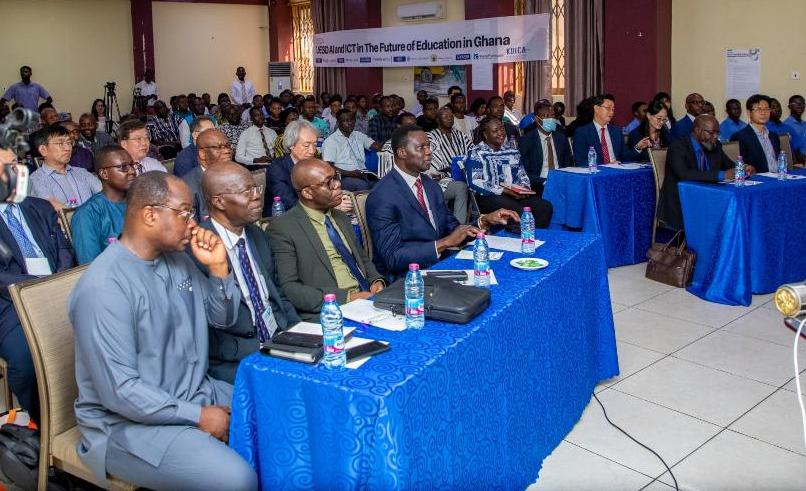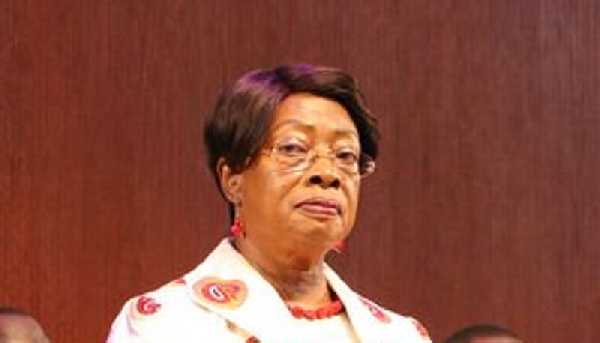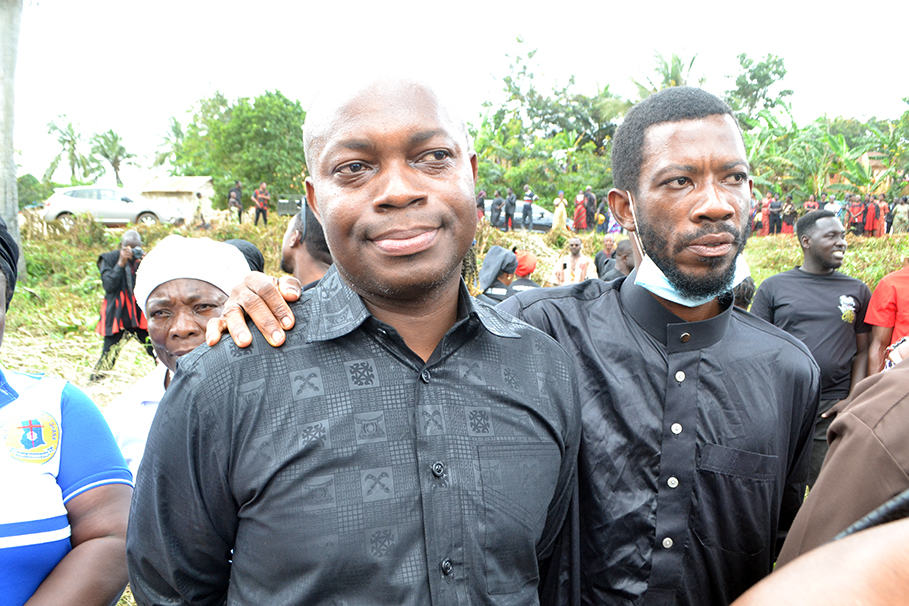
By Constance GBEDZO
The historical narrative of relations between Singapore and Ghana is one of increasing cooperation, moving from formal diplomatic ties to a more substantive and strategic partnership.
There is early diplomatic relations and shared heritage between the two countries. The two nations share a common historical foundation as former British colonies and port cities that have built their economies on regional and international trade.
This shared experience, along with a commitment to principles like non-alignment and multilateralism, has provided a foundation for their relationship. While the relationship has seen a recent surge in high-level engagement, the groundwork for economic ties was laid much earlier. The Singapore’s government agency, Enterprise Singapore, established a West Africa office in Accra as early as 2013 to support Singaporean companies’ expansion and investments in Ghana.
This long-term presence highlights Singapore’s early recognition of Ghana’s potential as a business hub in the region. In 2017, the two countries signed an Agreement for the Avoidance of Double Taxation (DTA), a crucial step in lowering barriers to cross-border investment and boosting trade.
However, there were ideological variance in the historical economic strategy of Singapore and Ghana. While both nations share a history as former British colonies, their approaches to nation-building and economic development diverged significantly in the mid-20th century. In the 1960s, a newly independent Singapore faced immense challenges: high unemployment, lack of natural resources, and a small domestic market.
Under the leadership of its first Prime Minister, Lee Kuan Yew, Singapore pursued a pragmatic, export-oriented industrialization strategy. His approach focused on attracting multinational corporations (MNCs). Singapore’s government actively courted foreign investment by providing a stable, corruption-free environment, world-class infrastructure, and a skilled workforce. This approach was central to creating jobs and building a modern economy. Yew adopted the following approach to economic development:
- Government-led economic planning: Singapore’s Economic Development Board (EDB) was established in 1961 to spearhead this industrialization. It worked with a clear vision to transform the economy from an entrepôt trade hub to a manufacturing and services powerhouse.
- Emphasis on human capital: Recognizing that its people were its only resource, Singapore invested heavily in education and technical training to ensure its workforce met the demands of foreign investors.
Singapore’s economic development today is a result of its unique, pragmatic, and market-oriented strategies.
On the other hand, Ghana’s first president, Kwame Nkrumah, launched his Seven-Year Development Plan (1963/64–1969/70) with a different ideological focus. The plan, based on socialist principles, aimed to restructure the Ghanaian economy by modernizing agriculture and rapidly expanding state-led industrialization. Nkrumah adopted the socialist-oriented development model in the 1960s with focus on the state-driven development.
The plan emphasized the use of state-owned enterprises to create wealth and reduce reliance on raw material exports. His plan was ultimately unfulfilled due to a combination of factors, including economic mismanagement, political instability, and the 1966 coup that overthrew Nkrumah’s government. Many scholars have expressed their reservations about Nkrumah’s ideologically driven approach, noting that it lacked the pragmatism needed for economic success.
Today, the relationship between Ghana and Singapore has reached a new level of strategic partnership. There is a significant strengthening of the relationship between Singapore and Ghana. This is largely driven by the state visit of Ghana’s President, His Excellency John Dramani Mahama to Singapore in late August 2025.
This visit, described as a “historic high point” by officials, has paved the way for a multi-faceted collaboration focused on trade, investment and bilateral cooperation, and knowledge-sharing. Many Ghanaians consider this as a practical partnership focused on specific and high-impact projects.
Singapore’s is about using its private sector and government agencies to support Ghana’s national development agenda through targeted investments, technical expertise, and strategic partnerships.
Key highlights of the recent developments include the following:
- Investment Commitments: President Mahama’s visit secured investment pledges worth $1 billion across various sectors. Some of the major investments secured are as follows:
- Agribusiness: Singaporean companies are investing in agribusiness, including food processing and agri-industrial zones, directly supporting Ghana’s focus on modern agriculture. For example, OLAM committed $200 million to establish food processing facilities in Ghana, including a 43,000 metric tonnes pasta processing plant and feed production facilities, with the goal of creating 4,000 jobs.
- Hospitality: The Shangri-La Group pledged $300 million for a luxury hotel complex, a shopping mall, and a convention center in Accra.
iii. Infrastructure and logistics: Singapore is leveraging its expertise in port management, urban mobility, and logistics to improve Ghana’s infrastructure. This includes projects to expand ports, develop cargo hubs, and implement Bus Rapid Transit (BRT) and eBus systems.
Agreements were made for expanding Tema Port facilities, reviving the Tema dry dock, and improving security and scanning equipment at Kotoka International Airport. Singapore also provides capacity-building training for Ghanaian officials in areas like economic development and civil aviation, which helps in the effective implementation of Ghana’s development strategies.
- Trade Goals: Ghana has set a new target of US1billion in bilateral trade with Singapore, a significant increase from the over US215 million recorded in 2024.
- Financial Cooperation: Both nations are working on a common payment platform to facilitate cross-border trade. The central banks of both countries will collaborate on developing a common payment platform to facilitate trade and investment flows between Africa and Asia.
- Bilateral Investment Treaty: Singapore already opened Enterprise Singapore in Accra to oversee its investment portfolio in West Africa. Currently, negotiations are being fast-tracked for a bilateral investment treaty to provide enhanced legal protections for Singaporean businesses investing in Ghana.
- Carbon Markets: A pioneering carbon markets agreement signed in May 2024 is being implemented, with a focus on channeling investment into low-carbon projects in Ghana. This established a legally binding framework for generating and transferring high-integrity carbon credits, positioning Ghana as a key partner for Singapore in its climate change goals. This agreement is a concrete example of how the partnership has evolved beyond just trade to include shared strategic interests. This partnership is focused on sustainable development and attracting green investment into Ghana’s economy.
- Knowledge Transfer, Education and Capacity Building
A core component of the new partnership is the emphasis on knowledge transfer. Drawing on Singapore’s renowned expertise in urban planning, technology, and governance, new initiatives will see Ghana adopt a “24-Hour Economy” model, designed to maximize productivity and create jobs around the clock. Singapore will offer training for Ghanaian forensic investigators and senior civil servants.
An Accra Institute of Technology, modeled after Singapore’s technical training programs, is also being planned. Over the years, Singapore has been a partner in capacity building for Ghana, with more than 800 Ghanaian officials having received training in Singapore in various fields, from economic development to civil aviation. This demonstrates a long-standing commitment to knowledge sharing and human capital development.
Ghana also partners Singapore to construct a 10,000 bed hostel facility at the University of Ghana.
- Government-to-Government Links: Both countries have signed agreements for regular political consultations. Ghana plans to open a consulate in Singapore by 2026, while Singapore has already opened an Enterprise Singapore office in Accra to manage its investments in West Africa. These developments signal a new phase of collaboration, with Ghana positioning itself as Singapore’s key partner and a gateway to the African Continental Free Trade Area (AfCFTA).
In summary, therefore, the historical narrative is not a long one in terms of formal diplomatic ties, but it shows a progression from initial contact to a deepening a multi-faceted partnership. President Mahama’s visit marks a new era for Ghana-Singapore relations, transforming the partnership from one of diplomatic pleasantries to a robust, results-oriented collaboration. Obviously, the economic vision of Ghana’s President, John Dramani Mahama as outlined in his “Reset Agenda” and “24-Hour EconomyPlus” strategy, aligns with Singapore’s expertise in various sectors
This recent developments demonstrate a new level of ambition, with both countries leveraging their shared histories and respective strengths to build a more robust economic and political relationship, with Ghana as Singapore’s gateway to the broader African market.
This strategic alliance is poised to yield significant benefits for both nations in the years to come.
Constance is a Risk & Enterprise Development Expert
The post Ghana and Singapore: Mahama’s State visit marks a new era for socio-economic transformation appeared first on The Business & Financial Times.
Read Full Story









Facebook
Twitter
Pinterest
Instagram
Google+
YouTube
LinkedIn
RSS